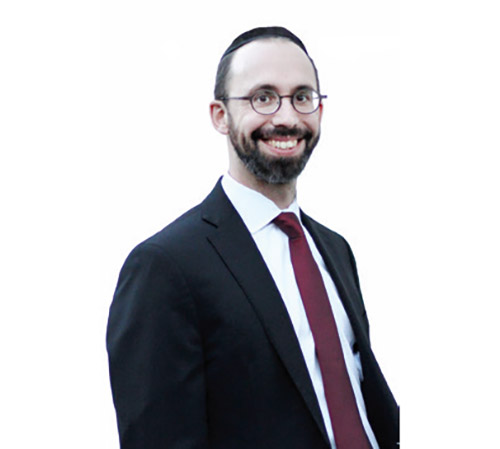
Like many people, I embrace denial when it comes to certain “visits,” such as my recent visit to the Department of Motor Vehicles. I went there a few weeks ago to register a car and was distressed as I saw the long line out the door of the building, with a police officer standing there, ordering people where to stand or sit. It’s always a humbling experience, being subject to the orders of a guard, with no talking allowed on the phone, no eating, and never knowing if you really have the required documents they say are needed to get what you came for!
Before the giving of the Torah, Hashem told Moshe to inform the Jewish people that by accepting the Torah they would become “mamleches kohanim”—a royal, priestly nation (Yisro 19:6). Rashi tells us this doesn’t mean “kohen,” priest, but rather “sarim”—officers/officials. I can picture that word from the serious faces I saw at my DMV visit. In Shemos, we see the word “sar” when Dasan and Aviram are quarreling with Moshe and tell him, “Who made you a sar (officer) over us?” (Shemos 2:14)
How is being an “officer” a prerequisite to receiving the Torah? An officer is a person who wields authority over others. What he does with that authority determines if he is doing his job properly.
The Sforno explains that being a royal, priestly nation is a chance to be an example to all of mankind on how to serve Hashem! When we exercise control over our urges and act as “officers” over our actions, we fulfill the mandate to be a kingdom of ministers, a royal priestly nation.
It’s not easy. Rav Yisroel Salanter said if we do not spend time to review and analyze our nature and tendencies, our strengths and weaknesses, we will never be able to be overcome them. This aspect of self-development is crucial for Jews. Hashem created us to develop ourselves and our behavior, to exercise control over ourselves and in how we interact with others. Hashem gave us shortcomings to overcome. It’s our task to address these shortcomings and not to make excuses. It’s part and parcel of our accepting the Torah.
Interestingly, the Baal HaTurim disagrees with Rashi and translates the word “kohanim” literally. He says we are mandated to be like the kohen gadol (High Priest), in our middos—attributes—to be worthy of receiving the Torah. It’s true that we lost that high level with the sin of the Golden Calf, but he says klal Yisrael will regain this elevated status at the coming of Moshiach.
I believe we can fuse the opinions of Rashi and the Baal HaTurim together by seeing the kohen gadol as representing the Jew who is in total control of himself. It’s a level that takes constant vigilance and daily introspection. But thought alone isn’t enough. Rav Salanter teaches that we need reinforcement through studying sefarim, holy books, in those areas in which we strive to develop. Such a practice will impress the appropriate values on our hearts and on our minds.
Perhaps this close attention to self-improvement explains why the verse following says, “Vayichan sham Yisrael neged hahar”—and the nation camped opposite the mountain. Rashi quotes the Gemara Shabbos, which asks why the word “vayichan” is singular when it refers to all of klal Yisrael. The Gemara answers that when we were encamped at the foot of Mount Sinai, our entire nation was united as one, with everyone sharing the same goals and desires.
Unity comes with control of self. Someone controlled by desire can be pulled in any direction. By definition, they can’t unite with another person for they are not even in control of themselves. Achieving achdus—unity—requires that level of mastery of self-control that in a deep way opens up our ability to connect to and to unite with others.
By Rabbi Baruch Bodenheim
Rabbi Baruch Bodenheim is the associate rosh yeshiva of Passaic Torah Institute (PTI)/Yeshiva Ner Boruch. PTI has attracted people from all over northern New Jersey, including Teaneck, Bergenfield, Paramus, Rockaway and Fair Lawn. He initiated and continues to lead a multi-level Gemara learning program. Recently he has spread out beyond PTI to begin a weekly beis midrash program with in-depth chavrusa learning in Livingston and Springfield. This year he joined Heichal Hatorah in Teaneck as a Gemara iyun rebbe. His email is rb@ptiweb.org.












